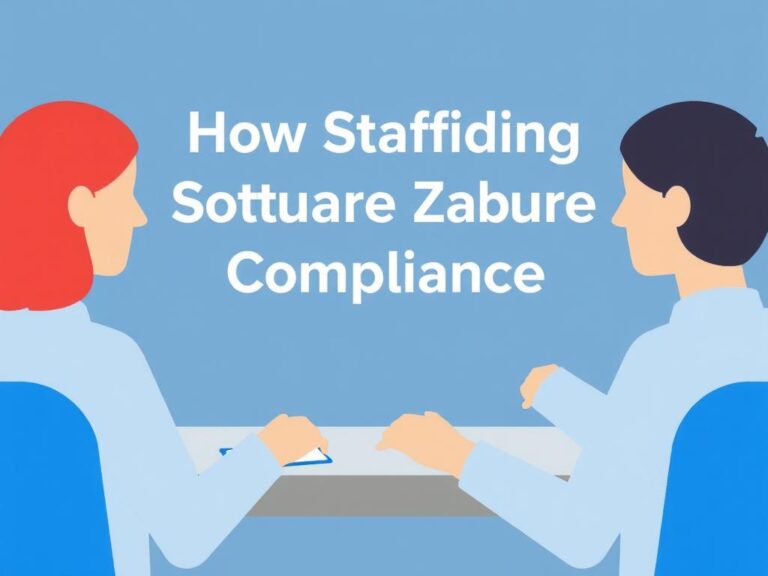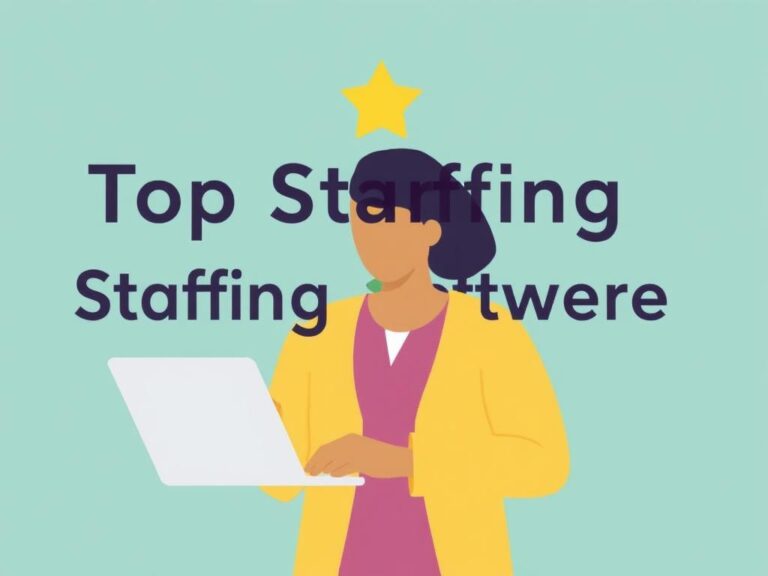Blockchain in Staffing Management: Future Possibilities
Staffing management is undergoing significant transformations with the integration of new technologies, and one of the most promising innovations on the horizon is blockchain. This technology, initially associated with cryptocurrencies like Bitcoin, has grown far beyond digital currencies and is now being explored for its potential to revolutionize various industries — including human resources and staffing. By increasing transparency, security, and efficiency, blockchain in staffing management opens doors to a future where hiring processes become more reliable and seamless for companies and job seekers alike. In this article, we’ll explore how blockchain works in staffing, the benefits it offers, potential future applications, and some challenges that need addressing along the way.
Understanding Blockchain Technology in Staffing
Before delving into the future possibilities, it’s essential to understand what blockchain actually is. At its core, blockchain is a decentralized, distributed ledger technology that records transactions across many computers in such a way that the records cannot be altered retroactively. This immutability and transparency make blockchain an attractive solution for staffing management, where trust and verification are vital. For example, verifying a candidate’s credentials, work history, or background checks can be cumbersome and prone to errors or even fraud in traditional systems.
With blockchain, verified information about candidates can be stored securely and accessibly by authorized parties. Once credentials are entered into the blockchain, they can’t be altered, ensuring authenticity. This capability transforms staffing management by reducing the risk of resume fraud, speeding up verification processes, and improving the overall quality of hires.
Benefits of Blockchain in Staffing Management
Implementing blockchain in staffing offers several tangible advantages. These can be broadly divided into categories including security, transparency, efficiency, and cost reduction. Here’s why many companies are becoming increasingly interested in blockchain’s potential.
1. Enhanced Security and Privacy
Blockchain’s encryption and decentralized nature make it exceptionally secure. Unlike traditional databases that can be hacked or manipulated, blockchain records are distributed across multiple nodes, so there is no single point of failure. For staffing companies handling sensitive candidate information, this means greater protection from data breaches and identity theft.
2. Improved Transparency and Trust
Because blockchain ledgers are transparent and nearly impossible to alter retroactively, staffing firms, employers, and candidates can trust the information stored within. Background checks, qualifications, and work history entered on the blockchain provide an audit trail that all parties can verify independently.
3. Streamlined Verification Processes

Verifying candidate information traditionally takes days or weeks, requiring communication with educational institutions, previous employers, or certification bodies. Blockchain can automate and reliably streamline this process, enabling near real-time verification. This speed not only benefits recruiters but also enhances the candidate experience by reducing waiting times.
4. Cost Reduction
By automating verification and reducing the incidence of fraudulent hiring, blockchain can help organizations save significant resources. The time saved from manual checks and the lower risk of employee fraud translates into direct financial benefits.
Use Cases and Future Possibilities of Blockchain in Staffing
Currently, several startups and companies are experimenting with blockchain solutions geared towards hiring and human resource management. Looking ahead, here are some of the most exciting prospective applications.
| Use Case | Description | Potential Impact |
|---|---|---|
| Decentralized Credentials Verification | Employers and educational institutions issue credentials on a blockchain that candidates can share securely. | Eliminates resume fraud and accelerates hiring processes. |
| Smart Contracts for Gig Work | Automated contracts on the blockchain that release payments upon task completion. | Improves trust and transparency in freelance and gig economy transactions. |
| Immutable Work History Records | Storing verifiable employment history that cannot be manipulated. | Facilitates accurate background checks and career progression verification. |
| Employee Data Privacy Control | Allowing workers to control who accesses their data and for which purpose. | Empowers candidates and complies with privacy regulations like GDPR. |
Decentralized Credentials Verification

One promising area is the issuance of academic and professional credentials on the blockchain. Universities and certification bodies can issue digital diplomas or certificates that candidates control and share selectively with recruiters during the hiring process. This method eliminates the risk of fake degrees or certificates, a persistent problem in staffing management.
Smart Contracts for Gig and Freelance Workers

In the booming gig economy, blockchain-powered smart contracts could automate agreements between clients and freelancers. These self-executing contracts ensure payments are automatically released once pre-defined conditions—like project milestones—are met. Such transparency benefits both parties and builds trust in freelance staffing platforms.
Immutable and Transparent Work History Records
Blockchain can enable workers to maintain a tamper-proof employment record that includes past roles, projects, and achievements verified by previous employers. Recruiters spend less time tracking down references or questioning employment gaps, as the blockchain provides reliable proof directly from employers.
Enhanced Privacy and Data Control
An important future possibility enabled by blockchain is giving job seekers control over their personal data. Instead of staffing agencies hoarding sensitive information, candidates could decide when and with whom to share their details. This approach aligns with the increasing demand for data privacy and compliance with regulations such as GDPR.
Challenges and Considerations
While the future of blockchain in staffing management is promising, there are still several hurdles to overcome:
- Standardization: To function effectively, a universally accepted blockchain infrastructure for credentials and HR information must be developed and adopted by educational institutions, employers, and staffing agencies.
- Legal and Regulatory Issues: Legal frameworks around digital identities and data stored on blockchains are still evolving. Compliance with labor laws and privacy regulations remains a critical consideration.
- Technical Complexity and Costs: Building and maintaining blockchain systems requires investment and expertise, which can be challenging, especially for smaller staffing firms.
- User Adoption: Both recruiters and candidates need to trust and understand blockchain technology, which can be a barrier if the system is complicated or opaque.
In addressing these challenges, collaboration between technology providers, HR professionals, governments, and other stakeholders will be vital.
Conclusion
Blockchain technology holds transformative potential for staffing management by enhancing transparency, security, and efficiency in hiring processes. From decentralized verification of credentials and immutable work histories to smart contracts for gig workers and improved privacy controls, the future possibilities are exciting and far-reaching. However, realizing these benefits will require overcoming challenges related to standardization, regulation, technical implementation, and user education. As blockchain matures and gains wider adoption, we can expect a paradigm shift in how staffing management operates—leading to more trustworthy, streamlined, and candidate-friendly hiring experiences. This evolving landscape offers tremendous opportunities for companies, job seekers, and the entire HR ecosystem.






